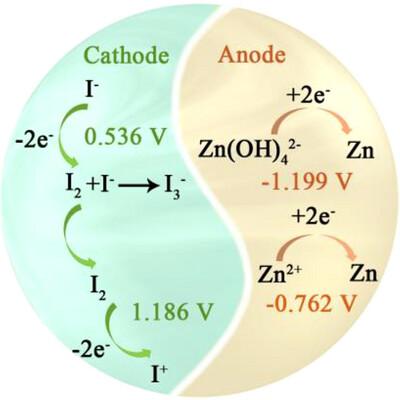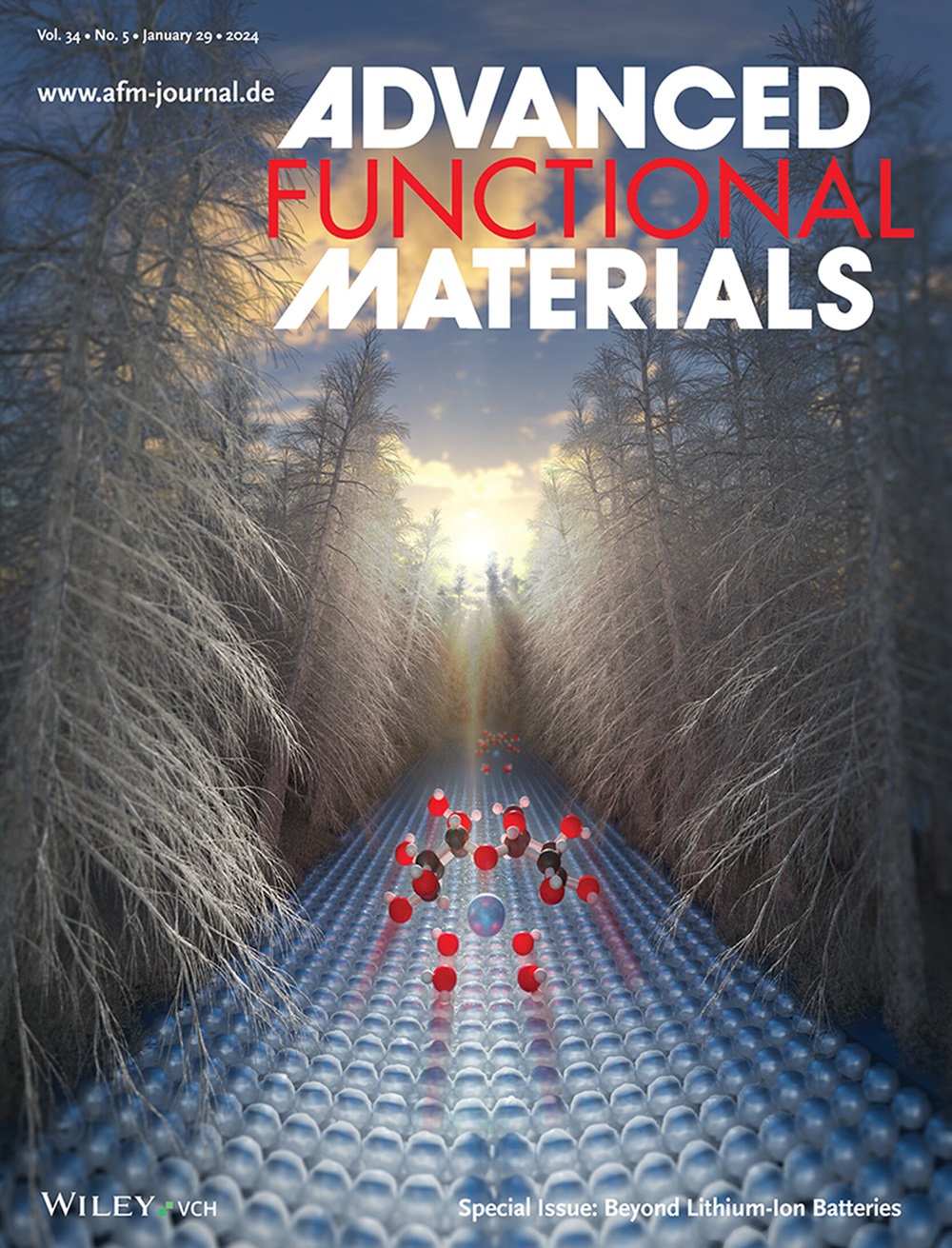A High-Voltage Alkaline Zinc-Iodine Flow Battery Enabled by a Dual-Functional Electrolyte Additive Strategy
IF 19
1区 材料科学
Q1 CHEMISTRY, MULTIDISCIPLINARY
引用次数: 0
Abstract
Zinc-iodine flow batteries have attracted huge attention for distributed energy storage devices owing to high inherent safety, suitable redox potential, and superior solubility. However, the zinc dendrite growth and the limited open circuit voltage significantly deteriorate zinc anode reversibility and hinder further technological advances for high-energy density zinc-iodine flow batteries. Herein, an alkaline zinc-iodine flow battery is designed with potassium sodium tartrate (PST) as an effective additive for Zn(OH)42− anolyte, which enables a high open circuit voltage of 2.385 V and meanwhile realizes a reversible zinc plating/striping reaction. Both experimental investigation and theoretical calculation confirm that the PST interacts strongly with Zn2+ by replacing the OH− from the Zn(OH)42− solvation shell and thus ameliorates the kinetics of the zinc deposition reaction. Besides, PST adsorbs preferentially on the electrode surface and effectively regulates the Zn2+ diffusion flux, thereby minimizing the formation of zinc dendrites and avoiding the formation of dead zinc. Benefitting from PST additives, the zinc-iodine flow battery demonstrates a remarkable combination of improved power density (616 mW cm−2), enhanced energy density (185.18 Wh L−1) as well as prolonged cycling performance at 120 mA cm−2, which presents a new pathway to develop reliable zinc anode for high-voltage flow batteries.

采用双功能电解质添加剂策略制备高压碱性锌碘液流电池
锌碘液流电池因其固有安全性高、氧化还原电位适宜、溶解性好等优点,在分布式储能装置中受到广泛关注。然而,锌枝晶的生长和有限的开路电压显著降低了锌阳极的可逆性,阻碍了高能密度锌碘液流电池的进一步技术进步。本文设计了以酒石酸钾钠(PST)作为Zn(OH)42−阳极电解质的有效添加剂的碱性锌碘液流电池,该电池可获得2.385 V的高开路电压,同时实现可逆的镀锌/带状反应。实验研究和理论计算均证实,PST通过取代Zn(OH)42 -溶剂化壳层中的OH -与Zn2+发生了强烈的相互作用,从而改善了锌沉积反应的动力学。此外,PST优先吸附在电极表面,有效调节Zn2+的扩散通量,从而最大限度地减少锌枝晶的形成,避免死锌的形成。在PST添加剂的作用下,锌碘液流电池的功率密度(616 mW cm−2)得到显著提高,能量密度(185.18 Wh L−1)得到显著提高,并在120 mA cm−2下延长了循环性能,这为开发可靠的高压液流电池锌阳极提供了新的途径。
本文章由计算机程序翻译,如有差异,请以英文原文为准。
求助全文
约1分钟内获得全文
求助全文
来源期刊

Advanced Functional Materials
工程技术-材料科学:综合
CiteScore
29.50
自引率
4.20%
发文量
2086
审稿时长
2.1 months
期刊介绍:
Firmly established as a top-tier materials science journal, Advanced Functional Materials reports breakthrough research in all aspects of materials science, including nanotechnology, chemistry, physics, and biology every week.
Advanced Functional Materials is known for its rapid and fair peer review, quality content, and high impact, making it the first choice of the international materials science community.
 求助内容:
求助内容: 应助结果提醒方式:
应助结果提醒方式:


